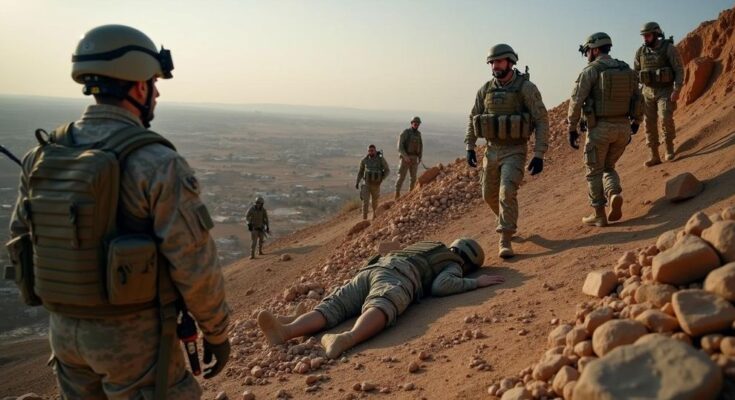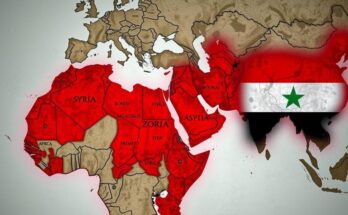Iran has confirmed the recovery of Brigadier General Abbas Nilforoushan’s body, who was killed in a recent Israeli airstrike in Beirut alongside Hezbollah leader Hassan Nasrallah. The IRGC is investigating security failures related to these deaths, as the absence of Quds Force head Esmail Qaani raises questions about operational security and potential Israeli infiltration.
Iran’s Islamic Revolutionary Guard Corps (IRGC) has announced the recovery of the body of Brigadier General Abbas Nilforoushan, a senior Quds Force general who was killed in a significant airstrike in Beirut. This strike reportedly also claimed the life of Hezbollah leader Hassan Nasrallah. General Nilforoushan was en route to a meeting with Nasrallah when the Israeli air raid struck an operational facility in southern Beirut on September 27. In a statement released by Iranian media, the IRGC shared, “With hard work and efforts around the clock, the body of martyr Abbas Nilforoushan has been discovered. The time of transferring the body of martyr Nilforoushan to the Islamic homeland and the funeral and burial plans will be announced later.” This announcement has only heightened the scrutiny faced by Iranian authorities concerning Esmail Qaani, the head of the Quds Force, who has been notably absent from public view following these events. Speculation regarding his fate surged after a second airstrike on October 4, which is believed to have resulted in the death of Hashem Safieddine, who was expected to succeed Nasrallah. Amid rumors of Qaani’s injury or death, sources indicate he is alive but currently under protection, undergoing interrogation as part of an investigation into lapses that allowed these strikes to occur. The IRGC advisor reassured the public about Qaani’s well-being, asserting that he would soon receive a commendation from Iranian Supreme Leader Ali Khamenei. The inquiries are reportedly centered on potential negligence and mismanagement within Qaani’s office, as well as security gaps that allowed Nilforoushan’s meeting with Nasrallah to be compromised. Sources indicate that during Nilforoushan’s trip to Beirut, he was directly transported to a fortified location prior to Nasrallah’s arrival, shortly before the deadly airstrike took place. Iran remains in a heightened state of alert following its missile attack on Israel in early October, a retaliatory move in light of the escalating conflict in Lebanon and ongoing military actions in Gaza. Israel has pledged a response, promising to conduct strikes that are “lethal, precise and above all, surprising.” General Nilforoushan had assumed command over operations in Syria and Lebanon after the earlier death of Brigadier General Mohammad Reza Zahedi from an Israeli strike.
The situation regarding Iran’s military leadership and operations in Lebanon has been tense following the targeted killing of key personnel by Israeli airstrikes. The death of General Abbas Nilforoushan alongside Hezbollah’s leader reveals the precarious nature of military engagement in the region. The IRGC, a critical military force within Iran, appears to be scrutinizing its own protocols and response mechanisms in light of these significant losses. Iran’s heightened military posture and its ongoing conflict with Israel underscore the severity of the current regional dynamics, where intelligence and security breaches are increasingly under scrutiny.
In summary, the loss of Brigadier General Abbas Nilforoushan signifies a grave moment for Iran’s military presence in Lebanon, prompting an internal investigation into security failures. The ongoing absence of Esmail Qaani and the Iranian military’s heightened alertness reflect the complex and dangerous geopolitical environment in the region. This incident not only raises questions regarding operational security within the Iranian command but also signals a serious escalation in the ongoing confrontation between Iran and Israel.
Original Source: www.middleeasteye.net




